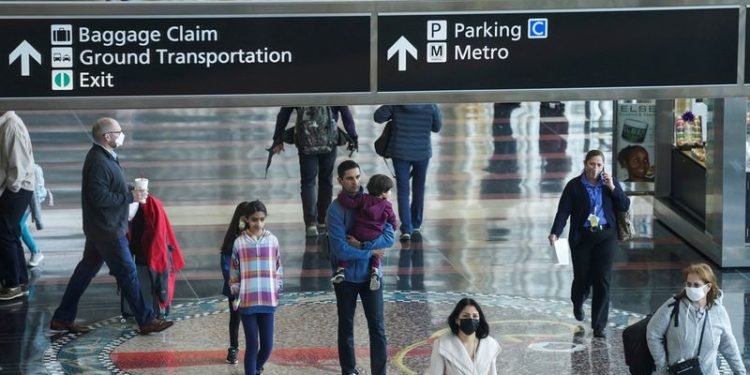US Airlines Reconstructing Networks as Business Travelers Make Gradual Comeback
US Airlines See Strong Leisure Demand, Await Full Return of Corporate Travelers

While leisure travel has rebounded strongly for U.S. airlines, the resurgence of corporate travel remains gradual, leading airlines to restructure their networks to accommodate a reduced volume of business flyers.
In the pre-pandemic landscape of 2020, corporate travel was the cash cow of the travel industry. However, the ongoing effort by U.S. companies to encourage employees back to physical offices has contributed to stagnant bookings. Concerns are arising among travel company investors who doubt that vacationer spending alone can compensate for the deficit.
Before the global health crisis, business travel accounted for up to half of passenger revenue for U.S. airlines, enabling them to sell high-margin premium seats and fill weekday flights.
Alaska Air has experienced business bookings consistently 25% below pre-pandemic levels. The airline anticipates breaching the "75% recovery ceiling" next year once companies finalize new travel budgets, though it approaches this assumption cautiously in its network planning.
"We're still waiting for the market to fully normalize," stated Shane Tackett, CFO of Alaska Air. The airline has invested in leisure-oriented destinations like Mexico and Costa Rica, while its California network remains 25% below 2019 levels.
JetBlue Airways recently announced plans to redistribute capacity from New York to high-margin leisure destinations due to a 20% shortfall in business travel demand compared to pre-pandemic levels.
Southwest Airlines is altering its flight schedule, moving from primarily short-haul to medium- and long-haul business routes. It's also adjusting flight times and reducing Tuesday and Wednesday flights by up to 10% compared to busier travel days.
"I expect business will continue to bounce back, but it will follow the recovery of leisure here for a while," remarked Southwest CEO Bob Jordan during an earnings call.
Hotels are grappling with similar challenges in corporate demand. Marriott reported significant declines in U.S. bookings from technology and accounting firms compared to 2019, with slower recovery in room bookings from larger corporations.
Recovery in corporate travel is more prominent in Asia-Pacific and European countries where a higher percentage of employees returned to physical offices. This contrasts with the U.S., where remote work arrangements are more widely accepted, as outlined in a MasterCard report on business travel trends.
SHIFTING TRAVEL PARADIGM
Airline executives note that hybrid work setups are enabling travelers to blend business and leisure, aiding airlines in filling premium seats previously favored by corporate travelers.
Delta Air Lines indicated that revenue growth from premium cabins has outpaced that from low-cost seats since the pandemic. American Airlines is experiencing higher revenue from customers combining business and leisure trips, prompting a review of its contract terms with major corporate clients.
However, some investors express doubts about the sustainability of such rapid travel rates. Recent passenger surveys and fare data suggest that U.S. travel demand may have peaked, undermining airlines' pricing leverage.
Valuations of travel companies continue to lag behind historical norms, reflecting investor uncertainty beyond the summer months, according to Cowen analyst Kevin Kopelman, who covers hotels and online travel.
Several executives anticipate a potential surge in corporate travel come September. Luis Gallego, CEO of IAG, the parent company of British Airways, noted signs of "some recovery" in corporate traffic during the third quarter.
While companies like Google Alphabet, JPMorgan Chase, Goldman Sachs, and Morgan Stanley have nudged employees back to office environments, the uncertain macroeconomic backdrop could hinder a complete revival of business travel in 2023 and beyond, as highlighted in MasterCard's annual travel report.

 chandni
chandni 



